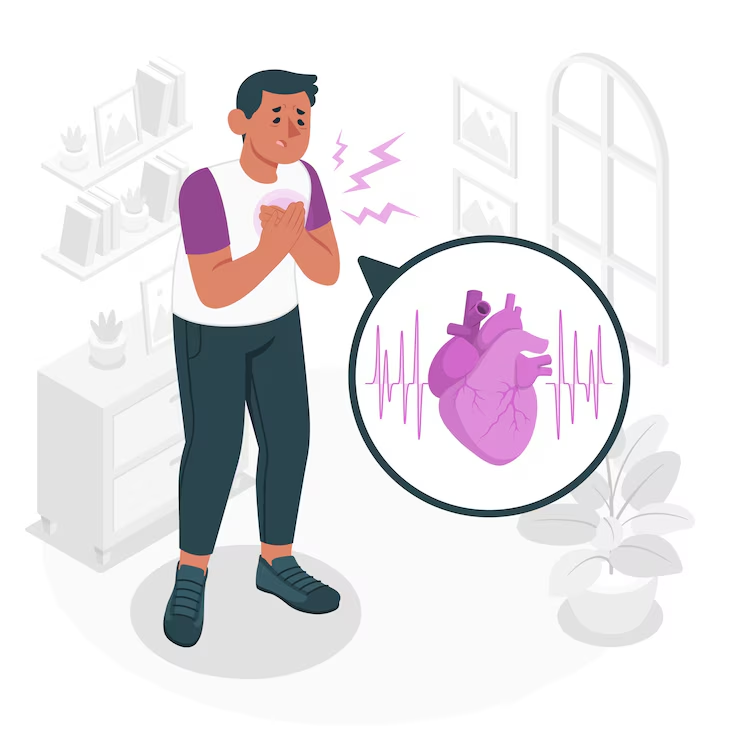Table of contents
- Understanding CBD and the Cardiovascular System
- Can CBD Lower Blood Pressure?
- Anti-Inflammatory and Antioxidant Benefits of CBD
- CBD for Stress and Anxiety – Indirect Heart Health Support
- Other Potential Heart Health Benefits of CBD
- How to Use CBD for Heart Health
- 5 FAQs About CBD for Heart Health
- Final Thoughts
Heart disease is the leading cause of death worldwide, prompting many to seek natural alternatives and supplements that support cardiovascular wellness. Among the growing list of options, CBD for heart health has gained significant attention in recent years. Cannabidiol, or CBD, is a compound derived from the hemp plant known for its potential therapeutic benefits—without the intoxicating effects of THC.
In this article, we’ll dive into how CBD for heart health could play a role in maintaining cardiovascular balance, reducing blood pressure, alleviating stress, and promoting overall well-being.
Understanding CBD and the Cardiovascular System

CBD works by interacting with the endocannabinoid system (ECS), which regulates several bodily functions, including inflammation, blood pressure, and heart rate. The ECS helps maintain balance (homeostasis), and recent studies suggest that CBD could positively affect the cardiovascular system by promoting relaxation and reducing oxidative stress.
Can CBD Lower Blood Pressure?
High blood pressure (hypertension) is a major risk factor for heart attacks, strokes, and other cardiovascular issues. Some preliminary studies suggest that CBD may help:
- Reduce resting blood pressure
- Lower stress-induced spikes in blood pressure
- Improve blood flow by relaxing blood vessels
In a 2017 study published in JCI Insight, participants who were given a single dose of CBD experienced a reduction in blood pressure compared to those who received a placebo, especially during stress-inducing tests.
Anti-Inflammatory and Antioxidant Benefits of CBD

Chronic inflammation and oxidative stress can lead to the development of heart disease. CBD has been shown to have powerful anti-inflammatory and antioxidant properties, which may help prevent arterial damage and plaque buildup in the arteries.
These effects may help:
- Decrease inflammation in blood vessels
- Protect against oxidative damage
- Improve endothelial (arterial lining) function
CBD for Stress and Anxiety – Indirect Heart Health Support
One of the major indirect ways CBD supports heart health is through stress and anxiety reduction. High stress levels can increase heart rate and blood pressure, both of which strain the cardiovascular system over time.
CBD has been studied for its anxiolytic (anti-anxiety) effects and may help:
- Promote a calmer mood
- Reduce cortisol levels (stress hormone)
- Improve sleep quality—another important factor in heart health
Other Potential Heart Health Benefits of CBD

While more research is needed, other cardiovascular benefits of CBD for heart health may include:
- Reducing arrhythmias (irregular heartbeat)
- Preventing myocardial infarction (heart attacks) in animal models
- Lowering cholesterol levels in conjunction with lifestyle changes
As always, CBD should be viewed as a complementary approach and not a replacement for prescribed heart medications or interventions.
How to Use CBD for Heart Health
If you’re considering using CBD for heart health, keep these points in mind:
1. Start Low and Go Slow
Begin with a low dose of CBD oil or capsules and gradually increase as needed.
2. Choose High-Quality Products
Look for third-party lab-tested, full-spectrum CBD products for best results.
3. Consult Your Doctor
Especially if you’re on blood pressure medication or other heart-related prescriptions, speak to a healthcare provider to avoid interactions.
4. Consider Your Lifestyle
CBD works best when paired with healthy habits like regular exercise, a heart-friendly diet, and stress management.
5 FAQs About CBD for Heart Health
No, CBD is not a replacement for any prescribed heart or blood pressure medications. Always consult your doctor before making any changes to your regimen.
CBD is generally well-tolerated, but some may experience fatigue, dizziness, dry mouth, or changes in appetite. It may also interact with medications.
Early research shows promise, but those with heart conditions should use CBD cautiously and only under medical supervision.
Results can vary depending on the individual, dosage, and product type. Some people notice benefits within a few days, while others may take weeks.
Tinctures, oils, or capsules are typically the most efficient for systemic support, allowing better dosage control and absorption.
Final Thoughts
While we still have much to learn, emerging research and anecdotal evidence suggest that CBD for heart health may offer promising benefits—from lowering blood pressure to reducing inflammation and managing stress. As a natural supplement, CBD might be a valuable addition to your heart-healthy lifestyle when used responsibly and with medical guidance.
Whether you’re managing a heart condition or simply looking to optimize your cardiovascular well-being, CBD could be worth exploring—with your doctor’s support.





